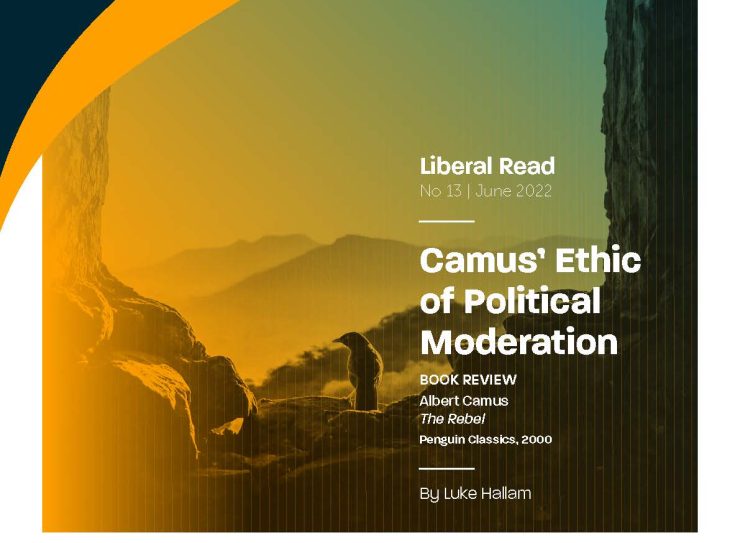Liberal Read No 13: Camus’ Ethic of Political Moderation
BOOK REVIEW: Albert Camus,
“The Rebel” Penguin Classics, 2000
By Luke Hallam

BOOK REVIEW: Albert Camus,
“The Rebel” Penguin Classics, 2000
By Luke Hallam

With the onset of the COVID-19 pandemic in 2020, thousands of readers turned to the French philosopher Albert Camus’ most famous novel, The Plague. They were attracted by its portrayal of ordinary people heroically battling pestilence in a daily slog of sacrifice, perseverance, and hope – and with good reason. But as visionary as The Plague remains, it is The Rebel (1951), the final book-length essay Camus published during his lifetime, that of all his works speaks the most to our politics, especially to anyone concerned with the problem of freedom. Camus’ broad aim was to understand the great events of the twentieth century – a period of wars and genocides, torture and execution, fascism and communism. He wanted to define an alternative political morality, one that would place certain limitations on what one human being can justly do to another and would strive to prevent such atrocities from ever happening again.